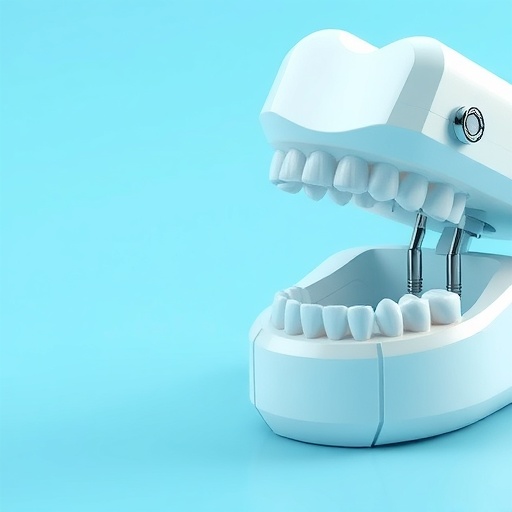In the rapidly evolving world of artificial intelligence, the accuracy and consistency of AI language models have come under intense scrutiny, particularly in specialized fields such as dentistry. The recent study conducted by Alshammari et al. sheds light on how these advanced technologies perform when faced with standardized multiple-choice questions (MCQs) in the field of dental education. As the integration of AI into education continues to gain traction, it is crucial that we assess the reliability of these systems in providing accurate information to students and professionals alike.
The research by Alshammari and colleagues critically evaluates the performance of various AI language models against the backdrop of standardized dental MCQs. With the rise of AI tools serving as supplementary aids for learners, understanding their capabilities becomes paramount. This study sets an important precedent for examining not only how AI can enhance learning, but also how it can offer accurate and trustworthy information in a field where precision is vital.
To conduct this research, the authors utilized a robust methodology that included selecting a range of standardized MCQs widely recognized in dental education. These questions encompass various aspects of the curriculum, ensuring a comprehensive evaluation of the models’ capabilities. Such an approach guarantees that the findings will have significant implications, not only for educational institutions but also for AI developers aiming to improve the reliability of their tools.
One of the key elements of this study is the sheer number of AI models evaluated, each with unique algorithms and machine learning techniques. This comparison allows for a nuanced understanding of the strengths and weaknesses inherent in different models. By dissecting their performance across diverse question types, the researchers were able to paint a clearer picture of which models could be utilized effectively in clinical education and practice.
As the research unfolds, the performance metrics used to quantify accuracy and consistency come into play. These include the percentage of correct answers provided by the models as well as their ability to maintain consistent results across similar queries. This level of analysis is critical, particularly in a discipline where miscommunication or misunderstanding can lead to serious consequences in patient care.
Moreover, the implications of this study extend beyond the realm of education. AI language models are increasingly being adopted in clinical settings for various applications, including patient interaction and information retrieval. Therefore, ensuring that these models can deliver accurate information is of utmost importance. The findings from Alshammari’s study provide critical insights that could inform the development of AI applications aimed at assisting dental professionals in real-world scenarios.
An interesting aspect of the study lies in its examination of the models’ limitations. Despite their advancements, AI language models are not without flaws. The researchers highlighted how some models struggled with ambiguous questions or those requiring specialized knowledge, prompting a conversation about the need for improved training datasets and model refinement. This caveat serves as a reminder of the complexity involved in developing AI tools that can operate effectively in specialized fields.
In discussing the results, Alshammari et al. also emphasize the evolving role of AI in educational environments. They speculate that as these models become increasingly capable, we may see a new era in teaching methodologies where AI plays a more interactive role in guiding both students and educators. Such transformations could potentially enhance the learning experience, providing tailor-made support to learners based on their unique needs.
The authors take care to contextualize their findings within the broader landscape of AI research and its implications for healthcare education. They point to recent advancements in natural language processing and machine learning as key driving forces behind the enhanced performance of these models. This technological evolution raises intriguing questions about the future of education and the potential for AI to reshape how knowledge is disseminated and assessed.
In addition to highlighting the importance of these findings for educational institutions, the study also opens avenues for future research. As AI language models continue to develop, different fields may benefit from similar analyses. Investigating how these models perform across various disciplines could yield insights that help to tailor educational tools to the specific needs of different areas of study.
Conclusively, the ramifications of the research conducted by Alshammari et al. reach far beyond the dental profession. This study marks a significant milestone in understanding how AI can support learning while also serving as a vital tool in clinical practice. The intersection of AI technology and healthcare education is not merely one of convenience, but a critical path toward improved patient care through better-prepared professionals.
As educational practices evolve and the demand for reliable information continues to increase, this study provides a crucial backbone for the responsible integration of AI into professional training environments. By rigorously assessing the capacity of AI language models, Alshammari et al. illuminate a path forward for educators, researchers, and practitioners keen on harnessing the power of technology to enhance learning outcomes.
The study ultimately serves as a call to action for educators and developers alike to ensure that AI tools are not only innovative but also accurate and reliable in their practical applications. By addressing the challenges highlighted in this research, the educational community can foster an environment where AI truly empowers learners, preparing them for the complexities of modern dentistry and healthcare.
Subject of Research: Comparison of accuracy and consistency of AI language models when answering standardised dental MCQs.
Article Title: Comparison of accuracy and consistency of AI Language models when answering standardised dental MCQs.
Article References:
Alshammari, A.F., Madfa, A.A., Anazi, B.A. et al. Comparison of accuracy and consistency of AI Language models when answering standardised dental MCQs.
BMC Med Educ 25, 1507 (2025). https://doi.org/10.1186/s12909-025-07624-7
Image Credits: AI Generated
DOI: 10.1186/s12909-025-07624-7
Keywords: AI in education, dental MCQs, language models, accuracy, healthcare education




